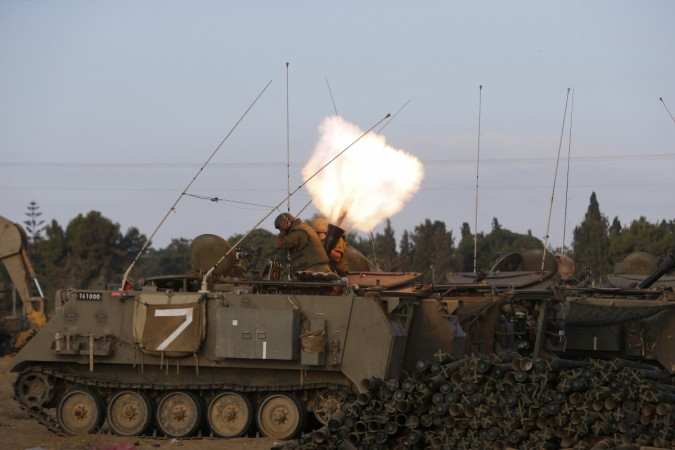
The United States made a major reversal of its stand on Jewish settlements in Palestine on Monday, saying the Israeli action is no longer illegal. The abandoning of the 40-year-old policy was welcomed in Israel and condemned by Palestinians. The US had earlier held that building Jewish settlements in the occupied West Bank was "inconsistent with international law."
The US Secretary of State, Mike Pompeo, said terming the establishment of civilian settlements inconsistent with international law 'hasn't worked.' "After carefully studying all sides of the legal debate," Mr Pompeo told reporters, "the United States has concluded that "the establishment of Israeli civilian settlements in the West Bank is not, per se, inconsistent with international law," he said.
What's the West Bank question?

Israel captured the West Bank in the 1967 war and has been gradually building Jewish settlements there as well as East Jerusalem ever since. Currently some 600,000 Jews live in as many as 140 settlements in this region. The growing Jewish Israeli population has always posed a threat for Palestinians as this would make the formation of a Palestinian nation ever more difficult and unlikely.
How did the US stand evolve?
It was President Jimmy Carter who adopted the stand In 1978 that the Israeli settlements in the West Bank were illegal. However, that stance has undergone changes over the years. The major shakeup happened under President Ronald Reagan in 1981. Moving away from the policy that the settlements were in violation of international laws, Reagan said the settlements were not illegal.
Over the next few decades the US held the line that the Israeli settlements were illegitimate but not illegal. That balancing act has been sidestepped now, with the Donald Trump administration endorsing the Israeli rights to build settlements in the West Bank and East Jerusalem.
What happens next?

The US move will obviously strengthen the hands of Israeli Prime Minister Benjamin Netanyahu, who has been struggling to stitch together a government after a second election returned indecisive outcome. It will also embolden Tel Aviv in the ongoing skirmish with Iran-backed Hezbollah in border regions. Netanyahu said the decision corrects a historical wrong.
Saeb Erekat, the Chief Palestinian negotiator, has said the Trump administration;s move will risk global stability, security, and peace, adding that the decision amounts to replacing international law with the law of the jungle, BBC reported. "The United States is neither qualified nor is authorized to negate international legitimacy resolutions and it has no right to give any legitimacy to Israeli settlement," the spokesman for Palestinian President Mahmoud Abbas said.
Will it help Trump in 2020 election?

It may help him. The display of out and out support for Israel will boost Trump's support among his core conservative base, especially the evangelical Christians. The current move is the latest in a series of pro-Israel moves taken by the Trump administration. The major pro-Israel measure that Trump took after coming to power was the recognition of Jerusalem as the capital of Israel in 2017. This was followed by the formal opening of an embassy in Tel Aviv in 2018.








